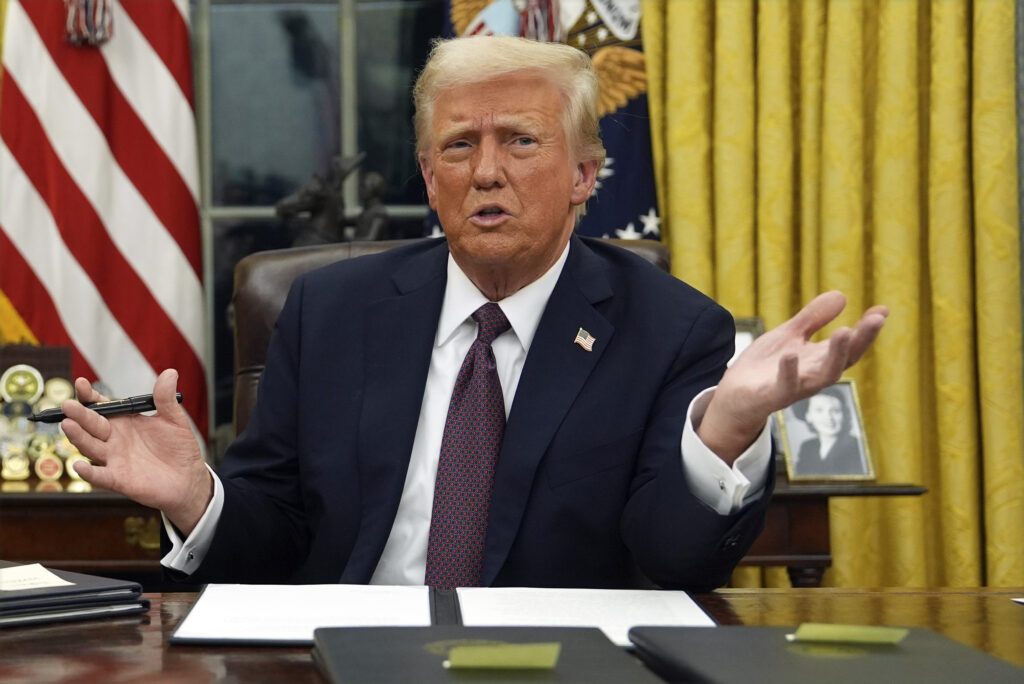Judge Orders White House to Unblock Funding for NIH, Others

A federal judge Monday ordered the Trump administration to resume payments for federal programs after the White House violated a previous order blocking a federal funding freeze.
In a blistering opinion, District Court Judge John McConnell in Rhode Island warned that not complying with a court order could lead to contempt of court, which is a crime.
The Trump administration appealed Monday’s order and the original temporary restraining order (TRO) blocking the funding freeze. The administration asked the 1st U.S. Circuit Court of Appeals for a stay of McConnell’s orders until the appeal is decided, as well as an administrative stay to pause the orders while the circuit court decides whether to grant a stay pending appeal. On Tuesday the 1st Circuit denied the request for an administrative stay. Litigation over the stay pending appeal continues. As a result of the 1st Circuit’s decision, the order blocking the White House’s federal funding freeze remains in effect.
On Jan. 31, McConnell blocked the administration’s directive freezing federal grants and loans. On Feb. 3, another federal judge in the District of Columbia granted a similar TRO blocking the same policy.
In a legal filing last week, states said that they still could not access federal money. The Trump administration argued that they were blocking funds to “root out fraud,” but McConnell did not buy it, writing that the continued funding freeze stems from the administration’s directive and not specific findings of possible fraud. He ordered the Trump administration to immediately restore funding to agencies like the National Institutes of Health and programs created under the Inflation Reduction Act and the Infrastructure Improvement and Jobs Act — two landmark laws championed by former President Joe Biden.
“The broad categorical and sweeping freeze of federal funds is, as the Court found, likely unconstitutional and has caused and continues to cause irreparable harm to a vast portion of this country,” McConnell wrote in his order.
The order comes after Democratic attorneys general in 22 states and the District of Columbia filed a lawsuit Jan. 28 challenging the Trump administration’s funding freeze. The freeze was first announced through an Office of Management and Budget (OMB) memo issued Jan. 27. The plaintiffs alleged the policy was unconstitutional and violated the Administrative Procedures Act, which lays out rules for how the executive branch should implement policies. A group of nonprofits, public health organizations and small businesses brought a similar lawsuit in D.C. federal court.
The OMB memo was later rescinded, leading the Department of Justice (DOJ) to argue that the two lawsuits were moot and should be dismissed. However, both judges overseeing the lawsuits remained steadfast that the policy itself was still in place and could be challenged. In quick succession they issued TROs ordering the frozen funding to be restored.
On Feb. 3, the DOJ responded to McConnell’s TRO saying they did not have to follow the order since the Democratic states “only challenged the OMB memorandum.” The administration as a result did not “read the Order to prevent the President or his advisors from communicating with federal agencies or the public about the President’s priorities regarding federal spending.” The DOJ also argued federal agencies not named in the lawsuit did not have to comply with the TRO.
On Feb. 7, the states filed a motion to enforce McConnell’s TRO, resulting in Monday’s order.
“The reality is that we shouldn’t have to be here. If the president followed the law, we wouldn’t have to be here,” California Attorney General Rob Bonta (D) said at a press conference Friday. “The administration’s refusal to unfreeze these funds is a clear violation of the court order.”
McConnell’s TRO blocking the federal funding freeze is in place until he hears and decides on a motion to preliminarily enjoin the directive. A hearing has not been scheduled yet.
Updated Feb. 11 to include ruling on administrative stay.